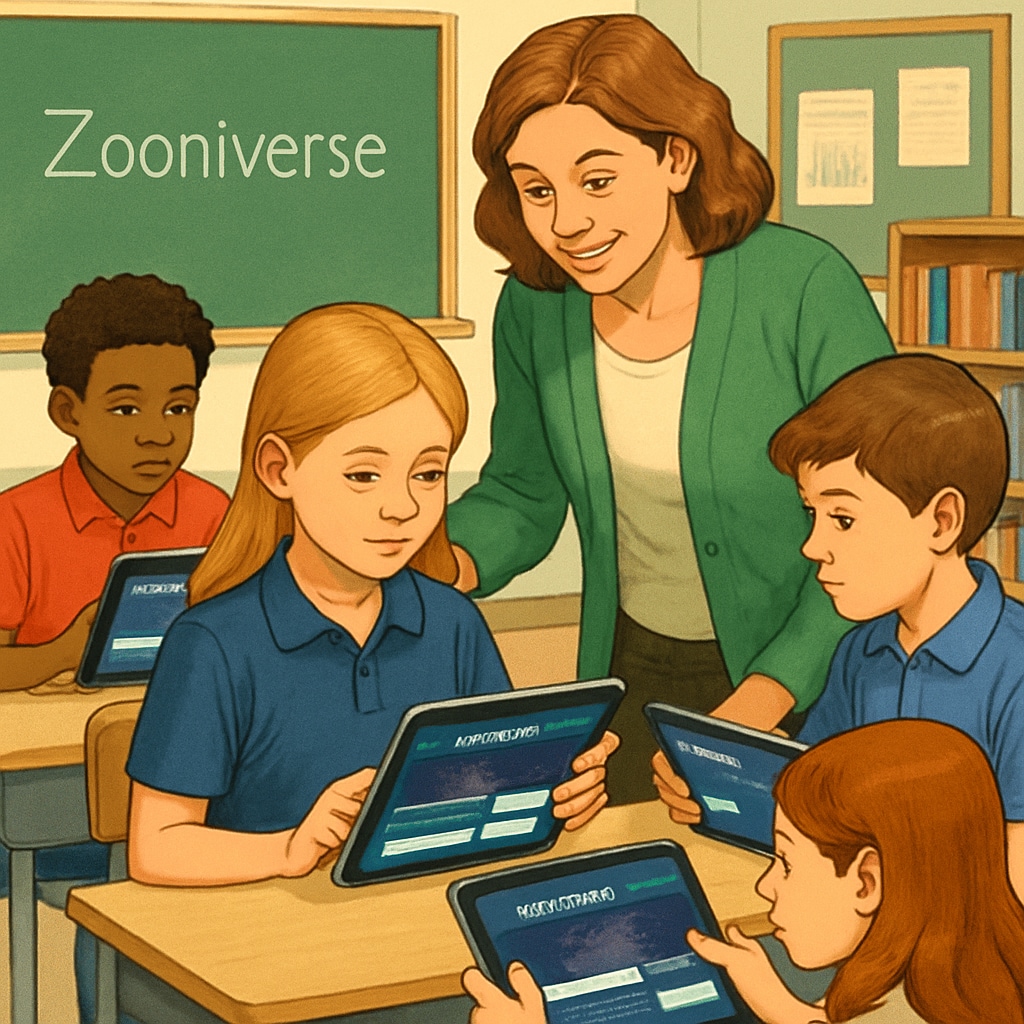Zooniverse, the world’s largest platform for citizen science, presents an exceptional opportunity for K12 students to engage in real-world science projects. By participating in these initiatives, students develop critical thinking skills, enhance their scientific literacy, and gain hands-on experience with authentic research. These projects not only ignite curiosity but also lay the foundation for future scientific endeavors. In this article, we explore how educators can integrate Zooniverse into K12 curricula and how this participatory approach supports essential skill development.
What is Zooniverse and How Does It Work?
Zooniverse is an online platform that connects volunteers from around the globe with research projects in various scientific fields, including astronomy, biology, climate science, and the humanities. The platform thrives on crowdsourcing, where participants analyze data, classify images, or contribute observations that help researchers tackle large-scale problems. For K12 students, Zooniverse provides an accessible entry point into the world of scientific discovery, allowing them to make meaningful contributions from their own classrooms.

Why Zooniverse is Perfect for K12 Education
Incorporating Zooniverse into K12 education aligns with modern teaching goals, such as promoting STEM (Science, Technology, Engineering, and Mathematics) learning and fostering inquiry-based approaches. Here are some key reasons why Zooniverse is a valuable tool for educators:
- Accessibility: The platform is free and user-friendly, making it easy for students and teachers alike to get started.
- Real-World Impact: Students contribute to ongoing research, giving their work a sense of purpose and relevance.
- Diverse Topics: From classifying galaxies to studying wildlife, Zooniverse offers projects that cater to various interests.
- Skill Development: Participation enhances critical thinking, data analysis, and problem-solving skills.
For example, a biology teacher might use a wildlife project to teach students about ecosystems, while an astronomy teacher could incorporate galaxy classification to explore the universe. These real-world applications make learning both engaging and impactful.
How to Integrate Zooniverse into the Classroom
Bringing Zooniverse into the classroom requires thoughtful planning to ensure that students gain the most from the experience. Here are some steps educators can take:
- Select the Right Project: Choose a project that aligns with your curriculum and students’ interests.
- Provide Context: Before diving in, introduce the scientific concepts and goals of the project.
- Guide Participation: Offer step-by-step instructions and monitor progress to help students navigate the platform effectively.
- Encourage Reflection: After completing the project, discuss findings and their significance to reinforce learning.
By following these steps, teachers can create a structured and enriching experience that complements traditional lessons.

The Long-Term Benefits of Citizen Science
Engaging in Zooniverse projects offers long-term benefits for students. In addition to enhancing academic skills, these projects nurture a sense of curiosity and responsibility toward global challenges. Students learn to collaborate, think critically, and approach problems scientifically—skills that are valuable in any career. Furthermore, early exposure to real-world science can inspire students to pursue STEM fields, addressing the growing need for skilled professionals in these areas.
For example, a student who explores climate science projects may develop an interest in environmental sustainability, while another who classifies galaxies could be inspired to study astrophysics. These experiences shape not just academic paths but also personal passions and life-long learning habits.
In conclusion, Zooniverse offers a transformative opportunity for K12 students to engage in real-world science. By integrating this platform into classrooms, educators can spark curiosity, foster critical thinking, and equip students with the skills needed for the future. As a result, Zooniverse not only supports current education goals but also cultivates the scientists and problem-solvers of tomorrow.
To explore Zooniverse and its projects, visit their official website: Zooniverse. For more background on citizen science, check out this informative article on Citizen Science on Wikipedia.


